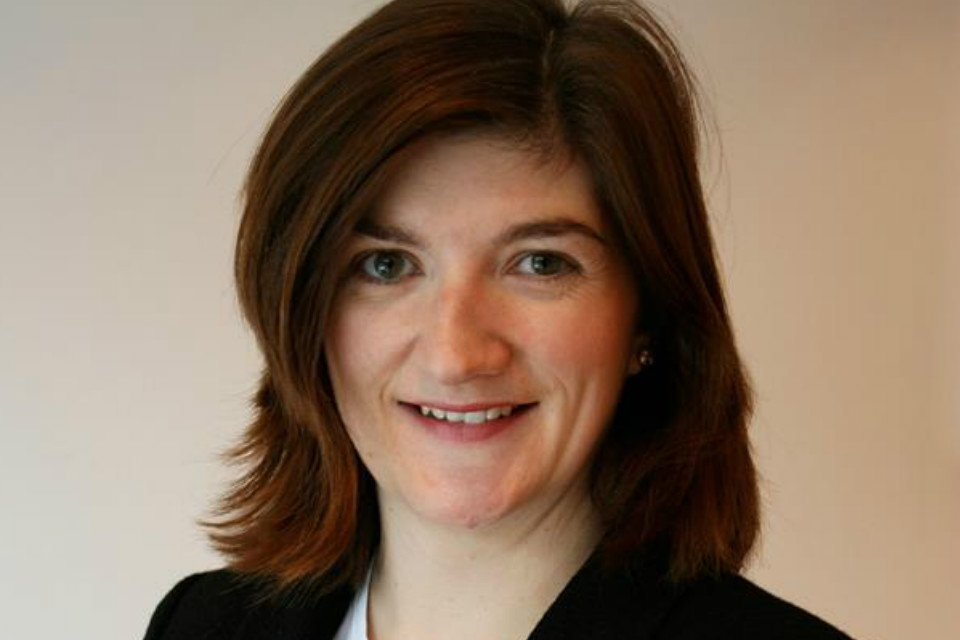Nicky Morgan speaks about our plan for education
Nicky Morgan, Secretary of State for Education, speaks at the 2014 Foundation for Excellence in Education summit.

Thank you, Ambassador [Sir Peter Westmacott], for that very kind introduction.
I can’t thank Governor Bush and the rest of the ExcelinEd board enough for organising this summit. It really is a genuine pleasure to be here, and an honour to be speaking to you all.
I know for some of you, you might be slightly disappointed to have travelled all the way to Washington only to hear me speak again - I’m looking at you, Liam!
But for the rest of you I’m delighted I have this opportunity to offer some reflections on the UK’s plan for education and to consider the lessons we can take from elsewhere in the world.
As you all know, our drive over the past 4 years has been to devolve as much power as possible from central and local government and towards schools themselves. That’s not because we don’t think education is important, far from it. But because we recognise that individual schools and teachers are far better placed to decide what works and what doesn’t. We know and they know that the key to improving our education system isn’t endless diktats from government, but the innovations that come from the ground - from networks of schools and teachers collaborating with one another to drive up standards and improve outcomes for young people. That’s what we mean when we talk about a self-improving, school-led system.
And even our harshest critics can’t help but be impressed by the zeal with which our teaching profession has embraced this concept of a school-led system. Who would have thought, even 10 years ago, that you’d have conferences like ResearchEd in the UK, sold out and packed full of teachers on a Saturday! And what’s even more thrilling to me is that these conferences and seminars aren’t just full of heads and senior school leaders, but people right at the very start of their career. Only last week I was hearing about a Teach First teacher who had developed his own approach to marking student classwork using his iPhone and rolled it out across the whole school.
Perhaps, then, more significant than the drive towards education reform itself has been the fact that these reforms have been driven by the people they end up affecting - teachers themselves.
One of the most significant aspects of our move towards a school-led system has been the decision to place responsibility for developing our teaching workforce and sharing best practice back in the hands of schools themselves, through our pioneering teaching schools programme. That’s why I’m delighted that Dame Vicky Beer is here today on behalf of the Teaching Schools Council to launch their report, ‘Building a lattice for school leadership: the top-to-bottom rethinking of leadership development in England and what it might mean for American education’.
And in the spirit of that report - there is much that our countries have learned from each other, and can continue to share. And I’m not just talking about soccer, House of Cards and One Direction, but also the huge range of education innovations that our countries have exchanged with one another.
We’re all too well aware that our government’s flagship academies and free schools programme was inspired by your charter school movement. And for Teach First - one of our most popular graduate schemes - we owe a debt of gratitude to Teach for America.
In some cases we’ve driven those reforms forward at a faster pace than even here in the US, with over 60% of our secondary schools now having academy status and many more primary schools following along the same path.
The results speak for themselves - we now have more children in good or outstanding schools than ever before - almost a million more pupils, 350 new schools and over 200,000 new school places and more students studying the key academic subjects that will prepare them for later life.
But our newfound zeal for education reform has taught us that there is no room for complacency. Across the world, countries large and small have realised that education is the key to helping the next generation to be confident they have world-class skills and not to be frightened of the global world we now live in.
So I want to do more to work with the profession to drive up standards in schools. I want to do more to help translate the amazing success story of educational reform in London to our coastal towns and rural villages, and I want to ensure that young people aren’t just leaving school with the academic skills they need to get a job, but also have the character, resilience and determination they need to succeed.
Fundamentally my belief is that all of us in education should be working to help every child, regardless of their background, develop the knowledge, skills and values to prepare them for life in the modern world.
That means recognising what government can and can’t do. Sometimes it means taking bold and unpopular decisions to drive up standards, but above all it means working in partnership with teachers, parents, pupils, governors, employers and unions to ensure we fulfil our mission.
I look forward to listening to and learning from all of you, and for all of us in the British delegation to take back some fantastic new ideas to instill excellence in our schools for years to come.